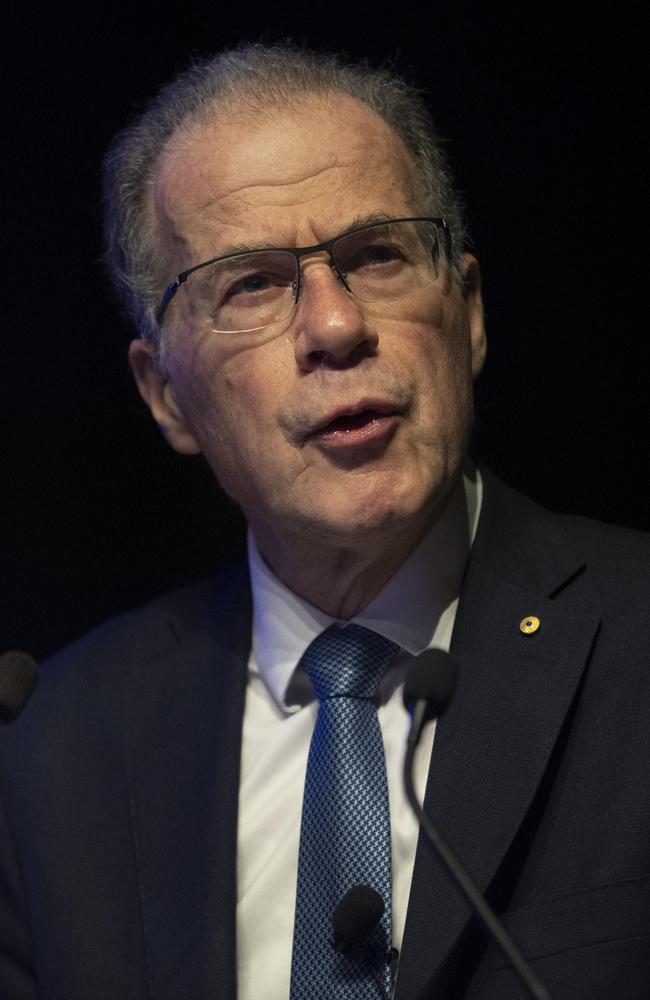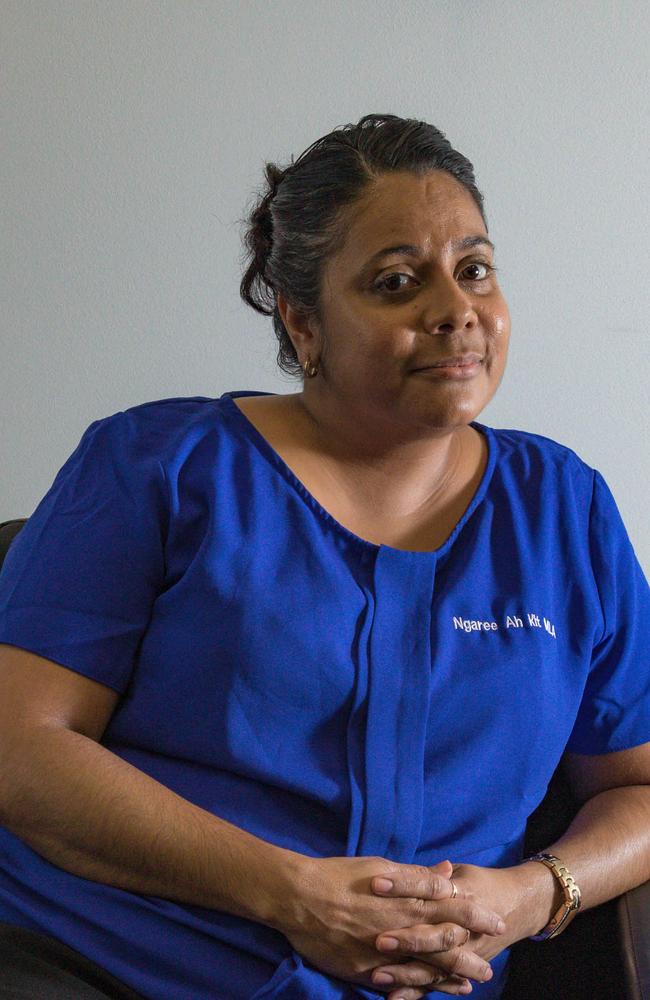NT NDIS review highlights ‘little effective progress’ since launch
NDIS experts’ review of the Territory’s disability services left behind a disappointing impression. Read why they say there is still ‘optimism’.
The NDIS has made “little effective progress” almost a decade after it launched its only remote trial site in Tennant Creek, according to a key architect.
Bruce Bonyhady, the inaugural chair of the scheme from 2013 to 2016, said he was surprised by the result.
“It’s fair to say that our overall impression is one of shock, disappointment by the lack of effective progress by the NDIS,” he said.
“But there’s also optimism.”

Mr Bonyhady’s observation comes after a deep dive into Maningrida’s service access alongside Disabilities Minister Ngaree Ah Kit and NDIS Quality and Safeguards Commissioner Tracy Mackey.
“The NDIS must engage much better with local communities to build service responses,” he said.
He said remote communities were “missing out” on the scheme’s full benefits but plenty of improvement areas were identified by the community.
“We’re hearing it’s too difficult to navigate, especially if English isn’t their first language,” he said.
“Above all else there’s a lack of services because they have not been connected up to local services.”

Ms Ah Kit said there were just 43 active providers for Maningrida but only three representatives based in the community.
“With the providers, they’re saying because it’s very expensive to deliver in a remote community, if you’ve got one participant and they’ve got a package, you want to be mindful of how much you’re drawing down to visit,” Ms Ah Kit said.
“You do want to give them the support that they need, but if you’ve got two people or 20 people, then a little bit of each of those packages can pay for your travel and accommodation.
“Then maybe you should be able to get there more often.”
Ms Ah Kit said remote NDIS assessments also posed a problem, with just 73 people in Maningrida accessing the scheme.
“I would hazard a guess to say there are a lot more that need to be assessed because they’re probably eligible,” she said.
“So we want to look at ways where we can fix the system, help those people that aren’t actually getting any help right now.”
TeamHealth – one of three providers on the ground in Maningrida – focuses on psychosocial disability care.
Chief executive Anne Gawen agreed the bureaucratic nature of the NDIS was a major barrier to effective access, particularly in the mental health space.
“It takes lots of appointments, lots of OT assessments, lots of medicals to demonstrate the eligibility for the NDIA and people just often give up,” she said.
“It doesn’t mean they don’t need it, often they absolutely do but it’s such a difficult situation for them to able to get all of those forms, tests to be able to be eligible.”
Ms Ah Kit was also concerned ill-informed participants were falling victim to fraudulent providers in remote communities, with some spending the entirety of their annual package in just six months.
She said unregistered providers could become “legally responsible for delivering services to one of our most vulnerable Territorians” with limited oversight until “something goes wrong”.
“We’ve heard stories of people being charged $800 after their ex-cousin-in-law saw them walking along in community and said, ‘hey, you want to come for a drive?’
“All of a sudden a $1200 invoice was sent to the plan manager because that was an outing or an excursion.”
Ms Ah Kit said many participants did not realise their package was being exploited until a new plan manager realised they had “nothing left”.
“Thank goodness our Territory providers – 99 times out of 100 – tell me, ‘we carry them, we pay out of our own pocket to make sure that this person is not left out in the cold’,” she said.
An NDIS Quality and Safeguards Commission spokeswoman said work was being done to protect NDIS participants in Maningrida, including community partnerships to develop targeted resources in three main dialects to increase awareness of participants’ rights.
Mr Bonyhady said these issues also created opportunity for change, not just for people with disability in remote areas but for the entire community.
“The issues raised with us a number of times were the questions of workforce – you need workforce training and those organisations will need some support to train up local workforce,” he said.
“So there’s an extraordinary opportunity to create permanent jobs.”
Mr Bonyhady said a lot of emphasis was on getting things right in the NT, which could have flow-on impacts for other places.
“We know if we can get it to work in the Territory we can get it to work in remote parts of QLD and NSW,” he said.
“The NDIS needs to be built community by community – no one size fits all.”
The next region targeted by the Territory’s deep dive will be Yuendumu.




